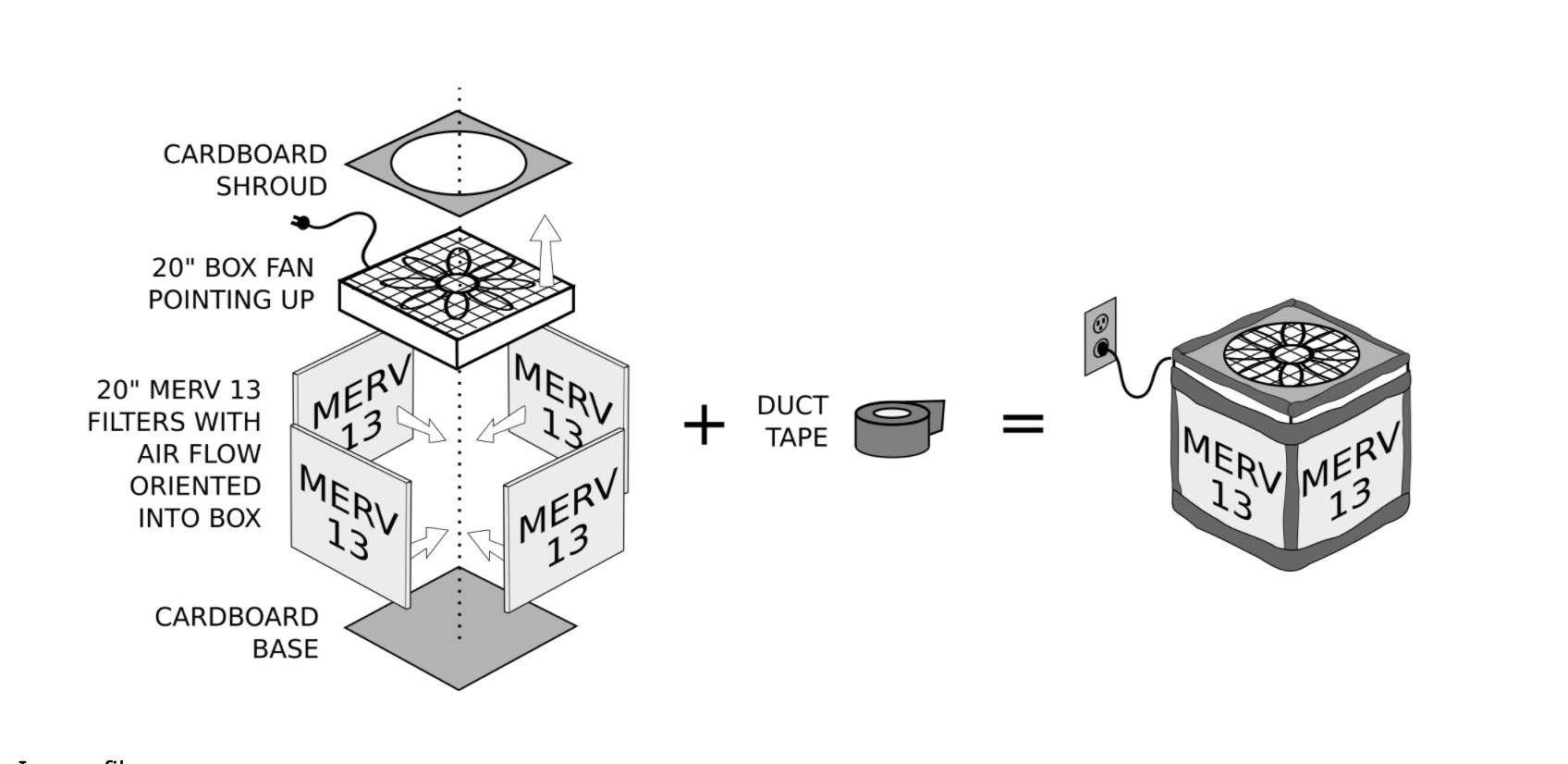
If you’re a teacher returning to the classroom, you may want some extra COVID protection. Thankfully, some researchers and practitioners have created “a design for an in-room air purifier which can remove a significant amount of COVID-19 virus from the air.”
“The design involves making a ‘box’ out of four 20″ MERV-13 filters (the ‘sides’ of the box), a 20″ box fan (the ‘top’ of the box), and a cardboard (the ‘bottom’ of the box’). Air flows in through the filter sides, removing particulates of the sizes that can transport COVID-19 particles, and then flows out through the fan at the top.” These devices can be built from parts available at Home Depot, Walmart and other big box stores, and assembled in about 30-60 minutes. Total cost runs $70-$200. Find designs and a step-by-step instructions here. And read more about the purifier at NPR.
Related Content
DEVO Is Now Selling COVID-19 Personal Protective Equipment: Energy Dome Face Shields
Bill Nye Shows How Face Masks Actually Protect You–and Why You Should Wear Them
MIT Presents a Free Course on the COVID-19 Pandemic, Featuring Anthony Fauci & Other Experts
DIY Air Purifiers for Teachers: Explore Free Designs & Instructions Online is a post from: Open Culture. Follow us on Facebook and Twitter, or get our Daily Email. And don't miss our big collections of Free Online Courses, Free Online Movies, Free eBooks, Free Audio Books, Free Foreign Language Lessons, and MOOCs.
from Open Culture https://ift.tt/3tPmfMB
via Ilumina

Comments
Post a Comment